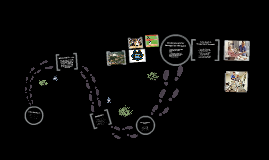Personal Finance Presentation
Transcript: Banking Today we will go on a journey from writing the check all the way to collecting interest on the money to answer "How does the process of check to bank work?" By: Cole Pilachowski Imagine you are working for your neighbor, mowing his lawn for $25. When you finish, your neighbor tells you he's out of cash and doesn't know how to write a check. You tell him, "I know how to write one! It's easy!" Checks: How to Write Them 1. Checks On a check, there are many things to fill out. You fill in the date, write who or what you're giving money to on the "Pay to the order of" line, and write the amount in numbers on the right of the dollar sign. Next, you write the amount in words. The banks will trust that over the amount in numbers, so make sure you have that part correct. After that, write in why you are giving money on the memo. Finally, sign the check and you're done! What To Write On A Check What To Write Afterward, After you help out your neighbor, he fills out the check and hands it to you. You feel accomplished for doing the hard work of mowing his lawn, as well as helping him write out the check. Now that you have your very first paycheck, you want to put it in the bank right away. You go to your parents for help, but they say to research where you want to put your money. While researching, you see something called a credit union. "What is this, and how is it different from a bank?" you ask yourself. Banks Vs. Credit Unions 2. Banks Vs. Credit Unions The main difference between banks and credit unions is whether they are for profit or not. Banks are for profit, as they charge high fees, aren't the best with customer service, but they do have rewards programs for customers as well as low rates. Credit unions are not for profit, so they have lower fees and better customer service, while having higher rates than a bank would. Banks are also much more convenient than credit unions, due to them being in almost all major cities. If you live in a small town and/or don't want high fees, choose a credit union. If you live in a bigger city and/or like to earn rewards from the bank, choose a bigger bank. The Difference Between Banks and Credit Unions What's The Difference? Afterward, After you make your decision, you go to your parents. "I've made my choice," you tell them. You want to go with a bank. They have better rates and there is one right downtown to go to. You are going to have your own savings account! Now that you have your own savings account, you realize you don't really know what that means. For example what are the rates and why are they good. You decide to research them as well. Savings Accounts 3. Savings Accounts A savings account is for storing away money that you don't need at the moment. If you want to save for a new pair of shoes or to buy a new phone, you should establish a savings account and add money to it every month. Rates for savings account range from .01% to 2.10% per year, so if you want to open one check and see what rates each bank has to offer as well as benefits along with the rate. What is a Savings Account? What is a Savings Account? Afterward, After researching, you know for sure you want to put your money in a new savings account. You go to your parents and ask them to set up the account for you, which they agree to. The next business day, your mom takes you to the bank to cash your first ever check. After that's done she tells you that now that it's in the bank, you'll collect interest on it. "What's interest?" you ask. "Well, I'll explain it to you," she responds. Interest 4. Interest Interest is when a bank adds money onto the amount you already have at different rates based on what kind of account you have, how long you've had it, and what bank you have invested your money into. Interest can collect once a year (Annually), twice a year (Semi Annually), four times a year (Quarterly), or twelve times a year (Monthly). Interest starts with your principal, or the amount of money that you start with in an account. Banks can build off of your principal in two ways - simple or compounding. How Does Interest Work? How Does Interest Work? Afterward, After she explains it to you, you ask her if you have to do anything to get interest. "No, all you have to do is keep your money in the bank," she answers. "Awesome! Free money!" you say back. "Well, not exactly..." she replies. On that same car ride, while thinking about interest, you ask, "What is the difference between simple and compound interest?" Your mom thinks it over for a second and then says, "Well, it's a little complicated, but I'll try to explain," Simple Vs. Compound Interest 5. Simple Vs. Compound Interest Simple and compound interest are very different. Simple adds the same amount every time it adds interest, calculated off of your principal, or original amount. Compound, on the other hand, adds off of the principal just once, and after that it adds interest based on your principal and the first amount added and so on.

















